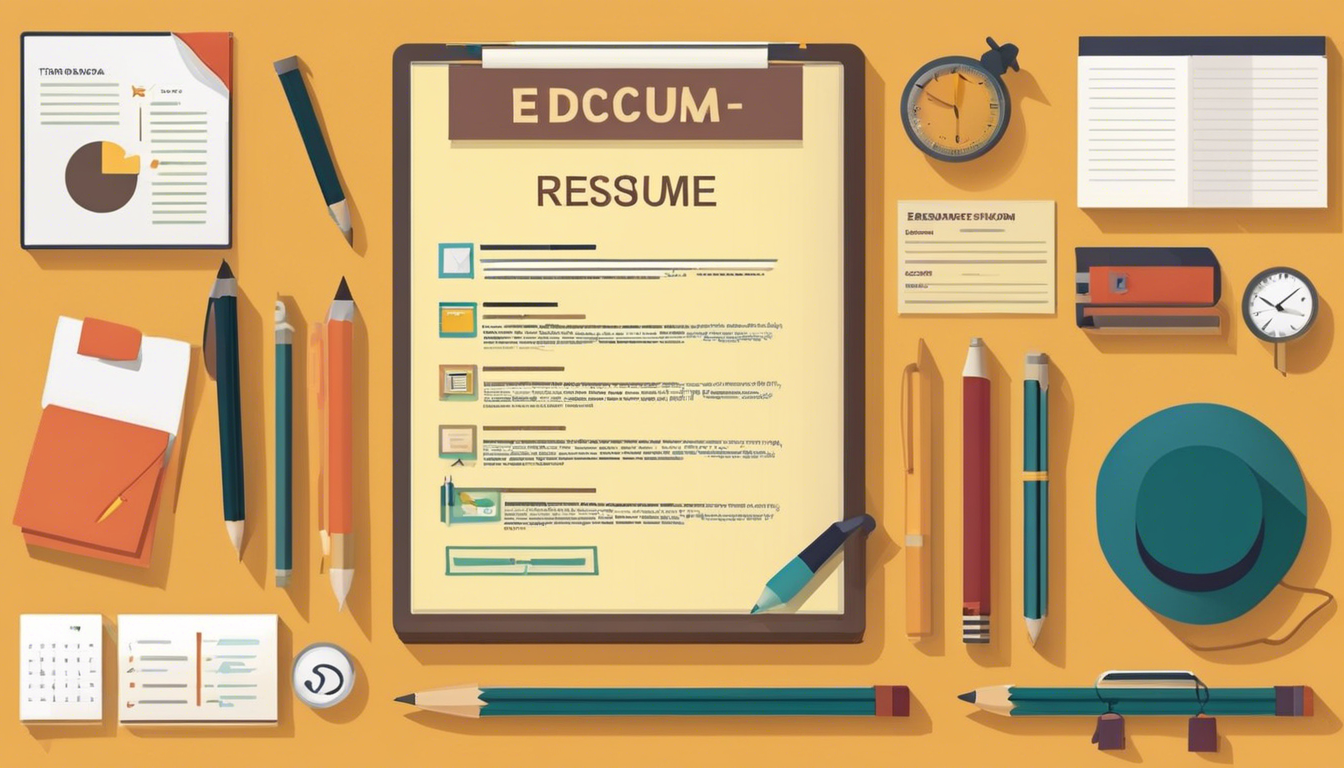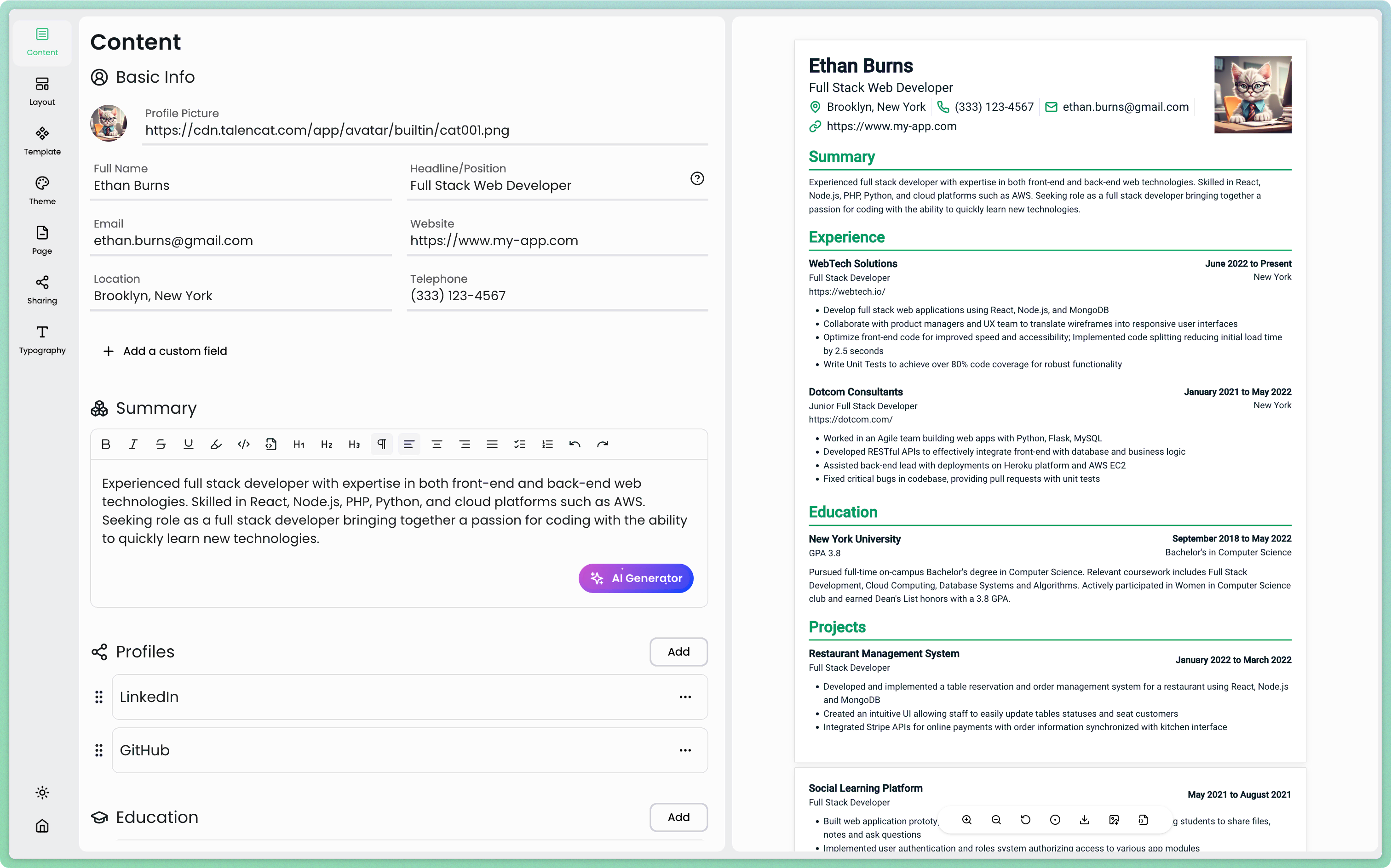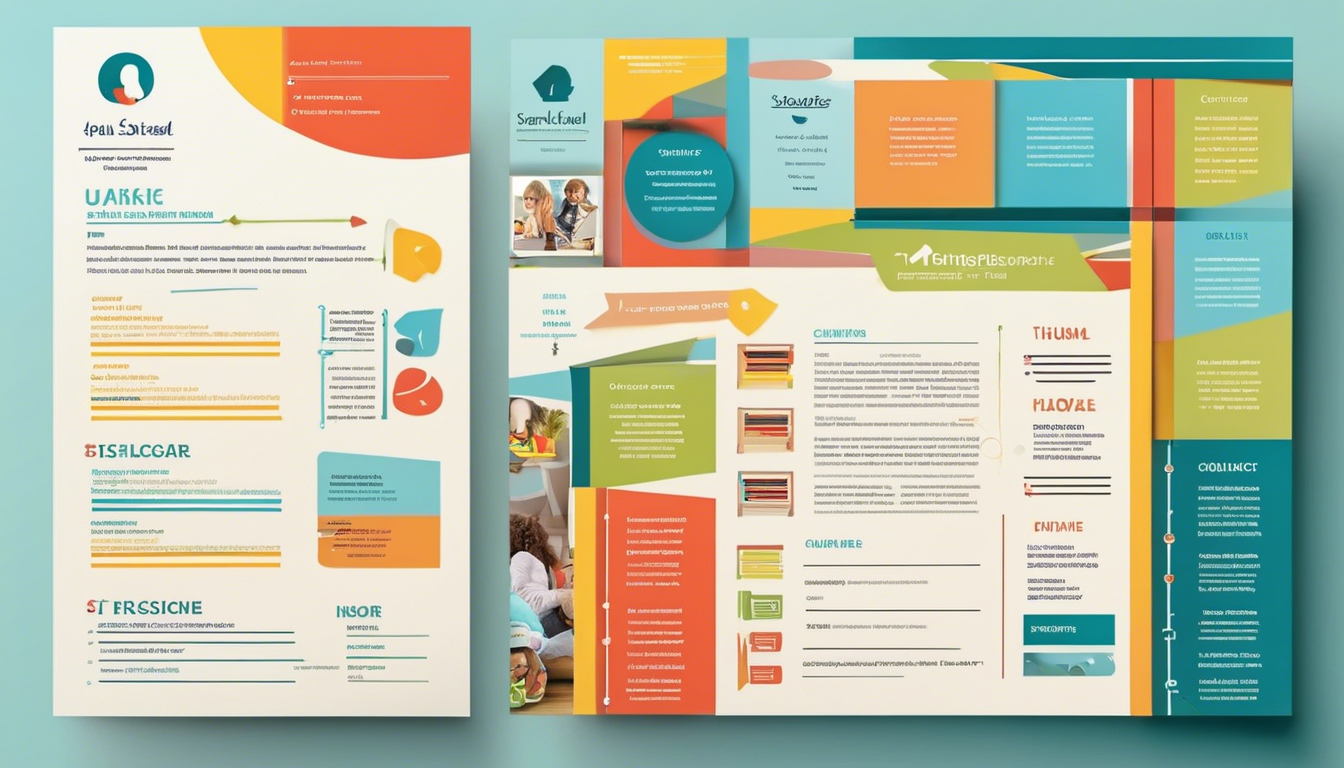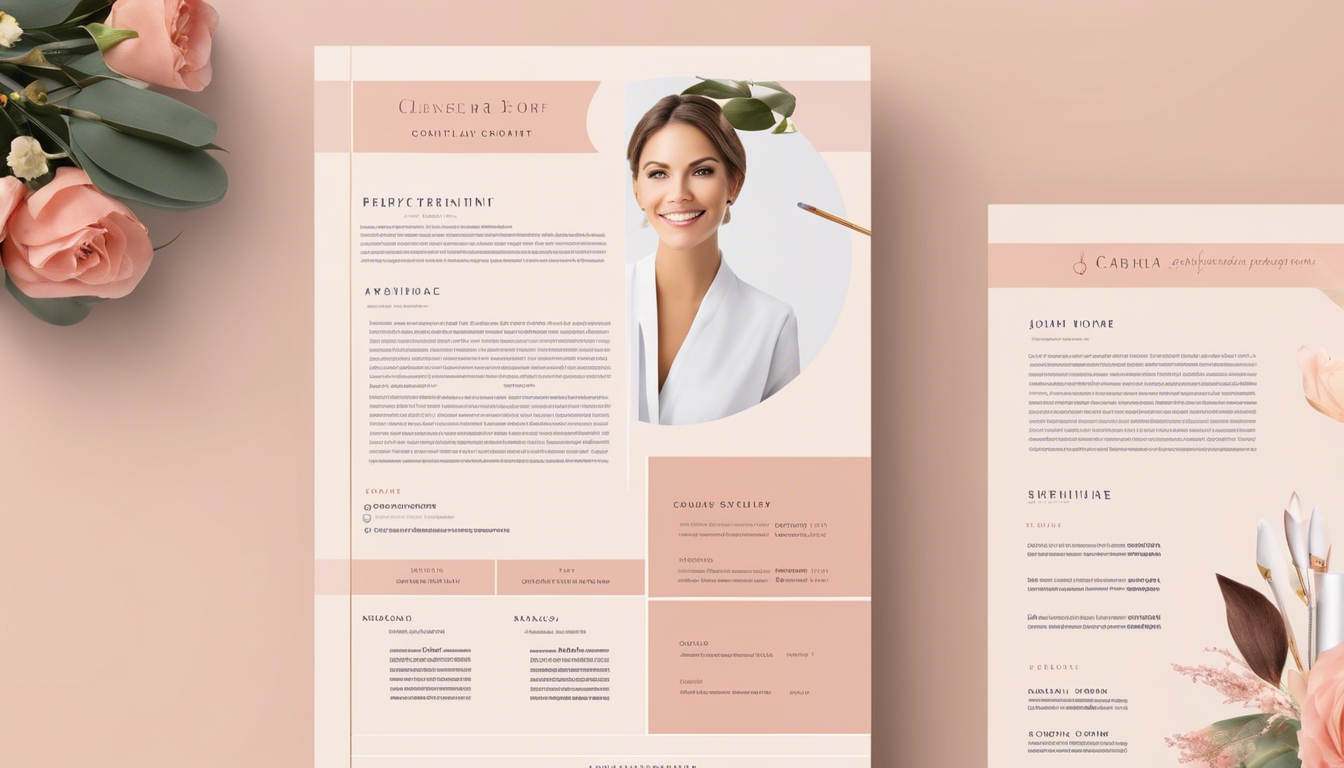In today's competitive job market, a well-crafted resume summary can be the key to catching a potential employer's attention and landing your dream job. This comprehensive guide will walk you through the process of creating an effective resume summary that highlights your unique skills and experiences, setting you apart from other candidates.
Resume Building Series:







Introduction to Resume Summaries
A resume summary is a crucial component of your job application that can make or break your chances of securing an interview. It serves as a brief yet powerful introduction to your professional profile, giving employers a snapshot of your qualifications and career highlights.
Definition of a Resume Summary
A resume summary, also known as a professional summary or summary statement, is a concise paragraph at the beginning of your resume that outlines your most relevant skills, experiences, and achievements. It's designed to give hiring managers a quick overview of your professional background and what you can bring to the role you're applying for.
Importance of a Resume Summary
The importance of a well-written resume summary cannot be overstated. In today's fast-paced hiring environment, recruiters often spend just a few seconds scanning each resume. A compelling summary can:
- Grab the reader's attention and encourage them to read the rest of your resume
- Highlight your most relevant qualifications for the job
- Demonstrate your understanding of the role and industry
- Set you apart from other candidates with similar qualifications
- Provide context for your career goals and aspirations
By crafting a strong resume summary, you increase your chances of making a positive first impression and moving forward in the hiring process.
Key Components of a Strong Resume Summary
To create an impactful resume summary, it's essential to understand and incorporate its key components. These elements work together to present a clear, concise, and compelling picture of your professional profile.
Length and Conciseness
A strong resume summary should be brief and to the point. Aim for 3-5 sentences or 50-100 words. This length allows you to include essential information without overwhelming the reader or taking up too much valuable space on your resume.
Clarity and Relevance
Your summary should be easy to read and understand, focusing on information that is directly relevant to the job you're applying for. Avoid using jargon or overly complex language that might confuse or alienate the reader.
Highlighting Skills and Achievements
Use your summary to showcase your most impressive skills and accomplishments. Focus on quantifiable achievements and specific skills that align with the job requirements. This helps demonstrate your value to potential employers.
Tailoring to the Job Description
One of the most critical aspects of an effective resume summary is customizing it for each job application. Carefully review the job description and incorporate relevant keywords and phrases that match the employer's requirements.
Steps to Write an Effective Resume Summary
Creating a powerful resume summary involves a systematic approach. Follow these steps to craft a summary that effectively showcases your qualifications and catches the attention of potential employers.
Step 1: Identify Your Key Qualifications
Begin by listing your most relevant skills, experiences, and achievements. Consider:
- Your professional background and years of experience
- Technical skills and industry-specific knowledge
- Soft skills that are valuable in your field
- Notable accomplishments and recognition
- Educational qualifications and certifications
Step 2: Research the Job and Industry
Before writing your summary, thoroughly research the position and company you're applying to. This will help you:
- Understand the key requirements and responsibilities of the role
- Identify industry trends and challenges
- Align your qualifications with the company's needs and culture
Step 3: Drafting the Summary
With your key qualifications and job research in hand, it's time to start writing your summary. Here are some tips to guide you:
Using Action Words
Begin your sentences with strong action verbs to create a dynamic and engaging summary. Examples include:
- Spearheaded
- Implemented
- Developed
- Streamlined
- Managed
Structuring Sentences for Impact
Structure your sentences to highlight your most impressive qualifications and achievements. For example:
"Results-driven marketing professional with 7+ years of experience in digital advertising, specializing in social media campaigns that have increased client engagement by an average of 45%."
Step 4: Reviewing and Editing
Once you've drafted your summary, it's crucial to review and edit it to ensure it's polished, clear, and impactful. Here are some steps to guide you through the process:
1. Read Aloud
- Purpose: Reading your summary aloud helps you catch any awkward phrasing, grammatical errors, or areas where the flow might be off.
- Action: Go through each sentence and listen for any parts that sound unnatural or unclear. Make adjustments as needed.
2. Check for Consistency
- Purpose: Ensure that your summary is consistent in tone, style, and focus. It should reflect the professional image you want to convey.
- Action: Look for any inconsistencies in language or messaging. For example, if you start with a formal tone, maintain that throughout.
3. Focus on Clarity
- Purpose: Your summary should be easy to understand and should clearly communicate your key qualifications and achievements.
- Action: Simplify complex sentences and avoid jargon unless it's necessary and understood by your target audience. Ensure that each sentence contributes to the overall message.
4. Highlight Key Achievements
- Purpose: Your summary should emphasize the most impressive and relevant achievements that align with the job you're applying for.
- Action: Identify the top 2-3 achievements or qualifications that are most relevant to the job description. Make sure these are prominently featured in your summary.
5. Quantify Where Possible
- Purpose: Numbers and metrics make your achievements more tangible and impressive.
- Action: Wherever possible, include specific numbers or percentages that demonstrate the impact of your work. For example, "Increased sales by 25%" or "Managed a team of 10 professionals."
6. Avoid Generalities
- Purpose: General statements can dilute the impact of your summary. Instead, focus on specific, actionable achievements.
- Action: Remove any vague or generic phrases like "hard worker" or "team player." Replace them with specific examples that illustrate these qualities.
7. Tailor to the Job
- Purpose: Your summary should be customized to the specific job you're applying for.
- Action: Review the job description and ensure that your summary addresses the key requirements and skills mentioned. Highlight how your experience aligns with what the employer is looking for.
8. Seek Feedback
- Purpose: An outside perspective can help you identify areas for improvement that you might have missed.
- Action: Share your summary with a trusted colleague, mentor, or career coach. Ask for their feedback on clarity, impact, and relevance.
9. Final Edit
- Purpose: Ensure that your summary is free of any remaining errors and is as polished as possible.
- Action: Run a final spell-check and grammar check. Ensure that all formatting is consistent (e.g., font size, spacing).
10. Compare with the Job Description
- Purpose: Make sure your summary directly addresses the job requirements and highlights your qualifications in a way that resonates with the employer.
- Action: Review the job description one last time and ensure that your summary aligns with the key points. Make any final adjustments to strengthen the connection.
By following these steps, you'll ensure that your summary is not only well-written but also effectively communicates your value to potential employers.
Crafting a Compelling Resume Summary with TalenCat CV Maker
Creating an impactful resume summary is crucial for making a strong first impression on potential employers. TalenCat CV Maker, an innovative online resume builder, offers a user-friendly platform to help you craft a powerful resume summary with ease. Here's a step-by-step guide on how to use TalenCat CV Maker to write an effective resume summary:
Step 1: Log in to TalenCat CV Maker and click the "+ Create Resume" button in the top right corner to start a new resume.

Step 2: Name your resume and choose whether to start from scratch or use a pre-built example. For crafting a tailored summary, selecting "Create with Example" can provide valuable inspiration.

Step 3: Once in the resume editor, navigate to the summary section. Here, you can input your professional summary, which will be instantly displayed in the right panel for real-time preview.

Step 4: Utilize TalenCat's AI-powered suggestions to enhance your summary. The platform can generate tailored content based on your industry and experience, helping you highlight your key strengths and career objectives effectively.

Step 5: Once you're satisfied with your resume summary, you can export your complete resume as a PDF or image file. Additionally, you have the option to enable online sharing, which provides a unique link to your resume for easy distribution to potential employers.
Remember, a well-crafted resume summary should be concise (2-4 sentences), highlight your most relevant skills and experiences, and align with the job you're applying for. TalenCat CV Maker's intuitive interface and AI-powered suggestions make it easier than ever to create a standout resume summary that captures employers' attention.
By following these steps and leveraging the features of TalenCat CV Maker, you can create a compelling resume summary that sets you apart in your job search.
Common Mistakes to Avoid
Be aware of these common pitfalls when writing your resume summary:
- Using generic or cliché phrases
- Including irrelevant information
- Being too vague or general
- Focusing on what you want rather than what you can offer
Tips for Improvement
To enhance your summary:
- Read it aloud to check for flow and clarity
- Ask a trusted friend or colleague for feedback
- Ensure it aligns with the rest of your resume
- Update it regularly to reflect your most recent achievements

Examples of Effective Resume Summaries
Entry-Level Resume Summary Examples
For those just starting their careers, focus on education, internships, and relevant skills:
"Recent graduate with a Bachelor's degree in Computer Science and a passion for software development. Proficient in Java, Python, and C++, with hands-on experience gained through academic projects and a summer internship at XYZ Tech. Eager to contribute fresh ideas and a strong work ethic to an innovative software development team."
Professional-Level Resume Summary Examples
For experienced professionals, highlight key achievements and specialized skills:
"Seasoned project manager with 10+ years of experience leading cross-functional teams in the healthcare IT sector. Successfully delivered 20+ projects valued at over $5 million, consistently meeting deadlines and exceeding client expectations. Certified PMP with expertise in Agile methodologies and a track record of improving team efficiency by 30% through process optimization."
Industry-Specific Resume Summary Examples
Tailor your summary to your specific industry:
Finance: "CFA-certified financial analyst with 8 years of experience in investment banking. Specialized in mergers and acquisitions, having facilitated deals worth over $500 million. Strong track record of developing accurate financial models and providing strategic advice to Fortune 500 clients. Seeking to leverage my expertise in a senior analyst role at a top-tier investment firm."
Marketing: "Creative and data-driven marketing professional with 6 years of experience in digital marketing and brand management. Proven success in developing and executing multi-channel marketing campaigns that increased customer engagement by 50% and drove a 25% boost in sales. Adept at leveraging analytics to optimize marketing strategies and ROI. Eager to bring my innovative approach and strategic thinking to a dynamic marketing team."
Tips for Crafting a Compelling Resume Summary
Personalizing Your Summary
Inject your personality into your summary while maintaining a professional tone. This can help you connect with the reader and give them a sense of who you are beyond your qualifications.
Using Metrics and Data
Whenever possible, include specific numbers and percentages to quantify your achievements. This adds credibility to your claims and helps employers understand the scope of your accomplishments.
Focusing on Soft Skills vs. Hard Skills
While technical skills are important, don't neglect to highlight relevant soft skills such as leadership, communication, and problem-solving abilities. These are often highly valued by employers and can set you apart from other candidates with similar technical qualifications.
Frequently Asked Questions (FAQs)
What is the difference between a resume summary and a resume objective?
A resume summary highlights your skills and experience, focusing on what you can offer the employer. A resume objective, on the other hand, states your career goals and what you hope to achieve in the position. In most cases, a summary is more effective as it immediately demonstrates your value to the employer.
How long should a resume summary be?
A resume summary should typically be 3-5 sentences or 50-100 words long. This length allows you to include essential information without taking up too much space on your resume.
Can I use a resume summary if I have limited experience?
Yes, even with limited experience, you can create an effective resume summary. Focus on your education, relevant skills, internships, and any volunteer work or projects that demonstrate your capabilities and enthusiasm for the field.
Conclusion
Recap of Key Points
Crafting an effective resume summary is a crucial step in creating a standout job application. Remember to:
- Keep it concise and relevant
- Highlight your most impressive qualifications and achievements
- Tailor your summary to each job application
- Use strong action words and specific metrics
- Review and refine your summary regularly
Encouragement to Start Writing Your Resume Summary
With the knowledge and tips provided in this guide, you're now equipped to create a compelling resume summary that will catch the attention of potential employers. Remember, your resume summary is your chance to make a strong first impression, so take the time to craft it carefully. Start writing, refine your message, and watch as your job applications begin to yield more positive responses. Your perfect job opportunity awaits – go out there and seize it with a powerful resume summary!



